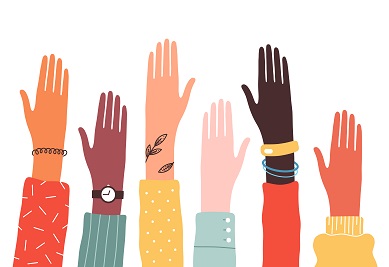by Ashish Kundi
Does our curriculum empower every student in our classroom? When I first became a teacher I was determined to teach the heart as well as the mind. Build empathy as a key skill for success in school life and life beyond. Our delivery of the curriculum needs to demonstrate this. Having authentic representation of global majority communities, creates a more fair and representative curriculum that will boost the personal development of our students.
Embedding an anti-racist, decolonised and authentically representative curriculum, needs to be perceived as part of our duty of care and a key part of our safeguarding in schools. Anti-racism and decolonisation in school life plays a part in working to prevent the outcome of students from global majority potentially developing a sense of inferiority and white students developing a sense of superiority. Students will in some cases outside of school, receive a heavy diet of hate and extreme values. As schools, we need to rise to this and tackle the forms of extremism that some of our students may be exposed to.
Growing up I specifically remember during the two minutes of silence in remembrance services, whilst having the due respect for those who fell in the wars. I just did not feel part of it. It was only as an adult it dawned on me that whenever there was talk of the war there was no mention of people that looked or spoke or behaved like me or my family. The representation was white.
Furthermore when outlining the contributions of global majority communities we must ensure we send the right messages. Whilst Gandhi, Martin Luther King and study of the transatlantic slave trade is needed and absolutely necessary. What message does this send to members of the global majority, if this is the limit?
When white students are represented by Newton, Churchill, Edison, Faraday, The Bronte sisters the representation is one of pioneers of knowledge and builders of the society we live in.
If the global majority are only represented through examples like Gandhi, Martin Luther King and the transatlantic slave trade, the representation is one of oppression and a constant struggle for equity. We need to include the black and brown pioneers of knowledge and builders of the society we live in, such as Charles Drew, Ibn Al Haytham, Sushruta. This then creates a mirror for global majority students where they are able see figures like themselves who were pioneers and believe they can also make an impact.
By not having authentic representation of the global majority and if we don’t analyse the systems of the past and present that impact global majority communities. We isolate a large proportion of the students we serve. Who unless we rise, will not feel a sense of belonging. When we embed anti-racism and decolonisation into all our school cultures all students personal development will have meaning and they will be empowered to achieve their most ambitious goals.
Acknowledgments
This article was authored by Ashish Kundi.
Ashish Kundi is the founder of Teacher Consciousness. A consultancy that inspires educators to rise, serve and empower students to be their most authentic selves by implementing meaningful decolonising and anti-racist practices.
He is a Head of RE and PSHE in the East Riding. He has appeared on multiple BBC podcasts such as ‘Teach Me a Lesson’ with Greg James and Bella Mackie.

